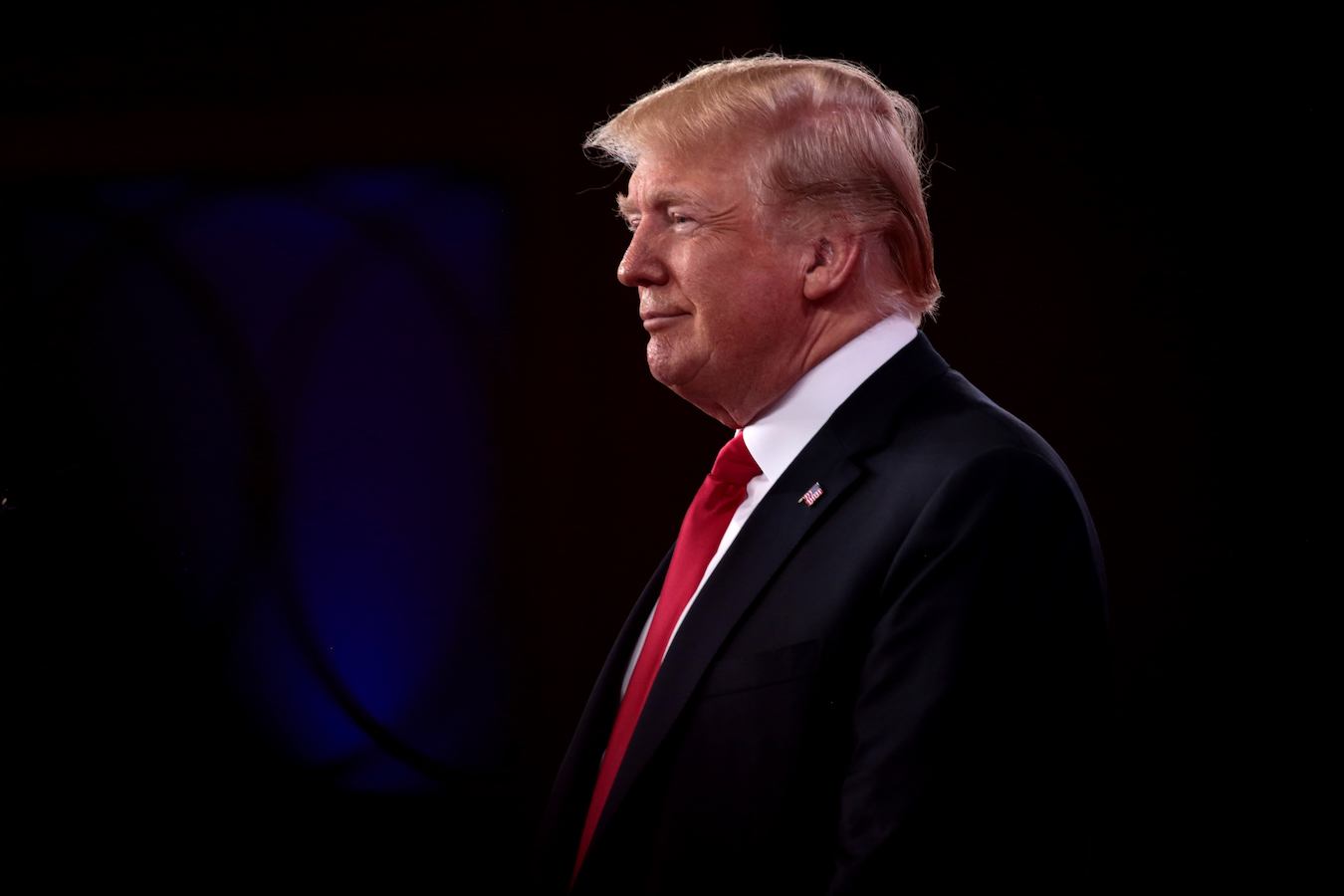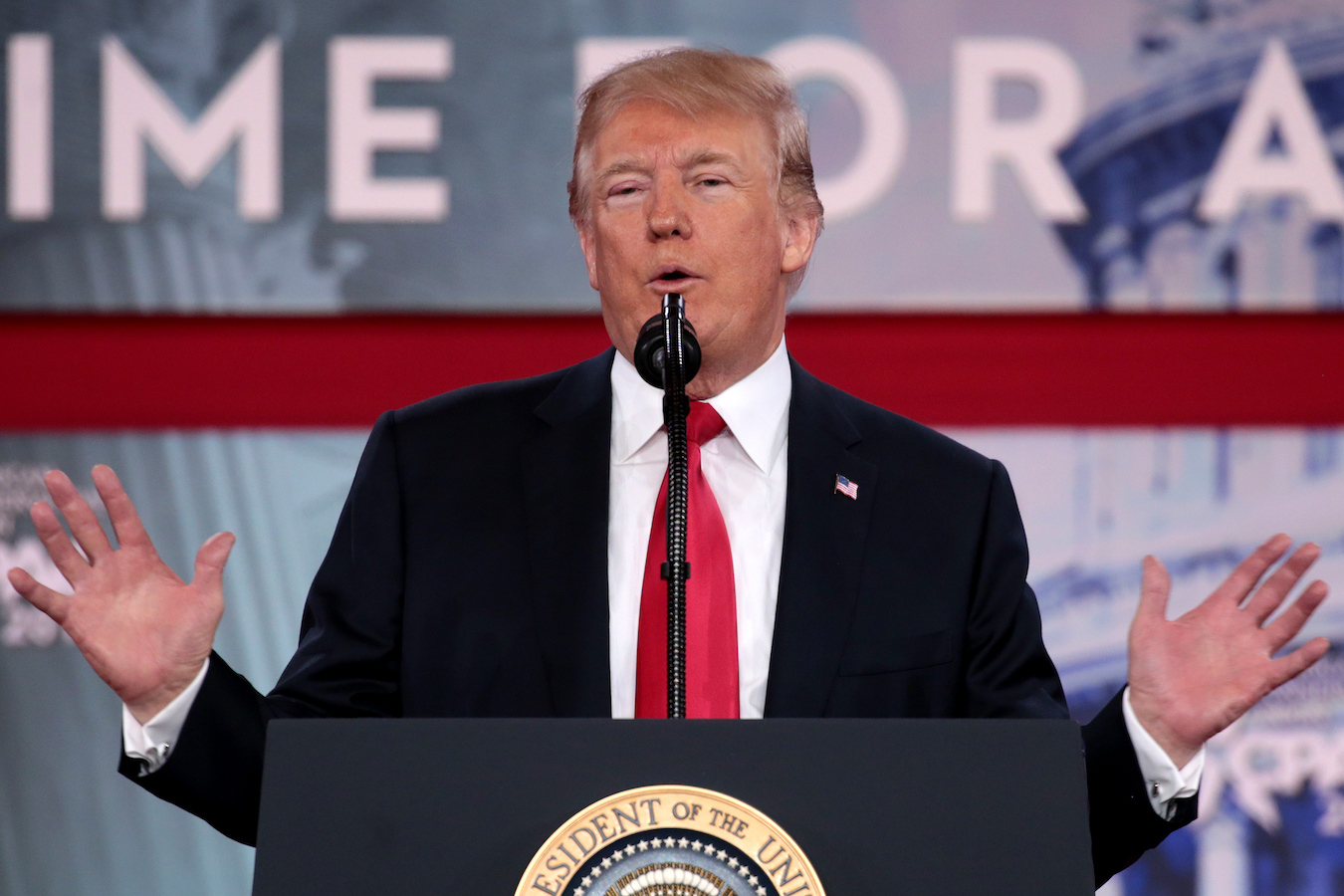by Brian Hioe
語言:
English
Photo credit: Gage Skidmore/Flickr/CC BY-SA 2.0
RECENT COMMENTS by former President US Donald Trump on Fox News lashed out at Taiwan. Trump is currently facing a host of charges, involving the attempted storming of the US Capitol by supporters, classified documents kept by Trump in his private residence, and over a hush-money case. Nevertheless, Trump is also seeking the Republican nomination for president.
In particular, during the interview, Trump refused to commit to a stance defending Taiwan in the event of a Chinese invasion–perhaps not so different from the stance of strategic ambiguity that the US officially adheres to regarding Taiwan. Nevertheless, Trump also criticized Taiwan as taking away US jobs, including the allegation that Taiwan hollowed out the US semiconductor industry. The suggestion, then, is that Taiwan has engaged in unfair trade practices against the US. Trump went on to suggest that the US should have sought to tax or impose tariffs on Taiwan to prevent this.
A significant undertone of Trump’s presidency was protectionist views of the global economy, as well as calls to bring manufacturing back to the US–suggesting that manufacturing was the hidden engine of past US economic prosperity. As such, lashing out at Taiwan is in line with this.
That an undercurrent of the American public supports protectionist views was increasingly clear after the Trump presidency. Consequently, the Biden administration declined to carry out actions such as rejoining the TPP, which Trump exited with an executive order shortly after taking office. The Biden administration has also emphasized efforts to bring back manufacturing jobs to the US, including in the field of semiconductors–an example is TSMC’s Arizona plant, which has been touted as a success in line with this endeavor by the Biden administration.
Trump’s comments further complicate the question of whether he would defend Taiwan in the event of a Chinese invasion. But, to this extent, they also reveal why it was a mistake for many in Taiwan to idealize Trump, to begin with.

Former US president Donald Trump. Photo credit: Gage Skidmore/Flickr/CC BY-SA 2.0
After the 2016 Trump-Tsai phone call, many in Taiwan took to idealizing Trump out of a sense of desperation. However, such views of Trump generally failed to grasp the way in which Trump unpredictably flip-flopped between political views, his far-right social views, and how his protectionist thinking differed sharply from traditional Republicans antagonistic toward China on anti-Communist grounds.
MAGA Republicans such as those that backed Trump currently call for a decline in aid to Ukraine, suggesting that the US’s interests would be better served by backing Taiwan. This suggests a zero-sum relationship between support for Taiwan and support for Ukraine, framing backing Ukraine as to the detriment of backing Taiwan. This is not how Taiwan itself has framed the issue, with Tsai administration officials instead suggesting that Taiwan and Ukraine share a common cause as democracies and that global support for one benefits the other–including with regard to military support.
But Trump’s comments are indicative of how they could turn on Taiwan, too, seeing Taiwan as no different from China in engaging in unfair trade practices against the US. As with Ukraine, Taiwan will be framed as a “freeloader” that benefits from US munificence while doing little for its own defense. Taiwan should be highly cognizant of the risks of aligning with such individuals.



